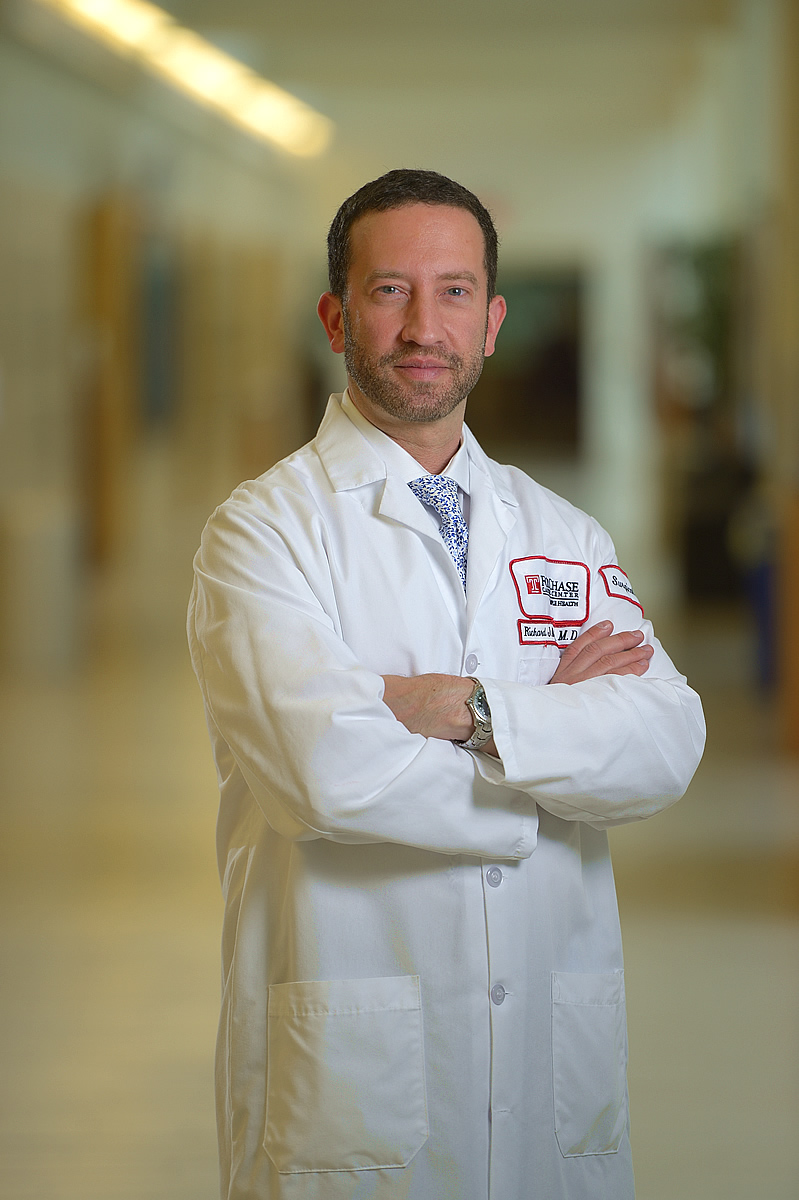Weather Alert: Following the winter storm, all Temple Health hospitals, campuses and clinical locations remain open. Patients will be contacted directly if their visit is affected. Please check TempleHealth.org or FoxChase.org for updates and monitor myTempleHealth for changes to scheduled appointments.
Breadcrumb
- Home
- Fox Chase Cancer Center News
- Recommended Radiation Omitted From Breast Conservation Therapy for Some Women
Recommended Radiation Omitted From Breast Conservation Therapy for Some Women

PHILADELPHIA (December 14, 2017) – Nearly ten percent of eligible women in a recent study did not receive radiation therapy after breast conservation surgery, although it is proven to reduce the risk of recurrence. The researchers, from Fox Chase Cancer Center and the Lewis Katz School of Medicine at Temple University, also sought factors that led to omission of radiation in these women. Richard Bleicher, MD, a surgical oncologist at Fox Chase, is senior author of the study, which appears in the Journal of Surgical Research.
The researchers analyzed data from the National Cancer Database to examine the course of treatment for more than 10,000 women with unilateral breast cancer that was Stage 2 or 3 at diagnosis. All women in the study received a combination of neoadjuvant (preoperative) chemotherapy and breast conservation surgery between 2008 and 2012. They found that 9.53 percent of the women who were eligible for radiation after the surgery did not receive it.
“Although neoadjuvant chemotherapy can be used to shrink tumors prior to surgery, radiation after breast conservation surgery remains standard of care and preoperative chemotherapy doesn’t eliminate the need for it. Radiation is still critical in reducing the rate of recurrence in women who undergo breast conservation therapy,” Bleicher said. “We found that three percent of these women refused the radiotherapy, but we need to understand why the other six percent did not even have it recommended. Since all of these women had chemotherapy, an inability to tolerate the radiation may not be the primary reason.”
The study found that older age, insurance status, the facility type where the patient received treatment, geographic region, and more recent year of diagnosis were factors that led to omission of radiation as part of breast conservation therapy. The researchers were able to determine that race, education, income, comorbidities, rural versus urban setting, and tumor histology were not among the reasons women did not receive radiation.
Fox Chase Cancer Center (Fox Chase), which includes the Institute for Cancer Research and the American Oncologic Hospital and is a part of Temple Health, is one of the leading comprehensive cancer centers in the United States. Founded in 1904 in Philadelphia as one of the nation’s first cancer hospitals, Fox Chase was also among the first institutions to be designated a National Cancer Institute Comprehensive Cancer Center in 1974. Fox Chase is also one of just 10 members of the Alliance of Dedicated Cancer Centers. Fox Chase researchers have won the highest awards in their fields, including two Nobel Prizes. Fox Chase physicians are also routinely recognized in national rankings, and the Center’s nursing program has received the Magnet recognition for excellence six consecutive times. Today, Fox Chase conducts a broad array of nationally competitive basic, translational, and clinical research, with special programs in cancer prevention, detection, survivorship, and community outreach. It is the policy of Fox Chase Cancer Center that there shall be no exclusion from, or participation in, and no one denied the benefits of, the delivery of quality medical care on the basis of race, ethnicity, religion, sexual orientation, gender, gender identity/expression, disability, age, ancestry, color, national origin, physical ability, level of education, or source of payment.
For more information, call 888-369-2427